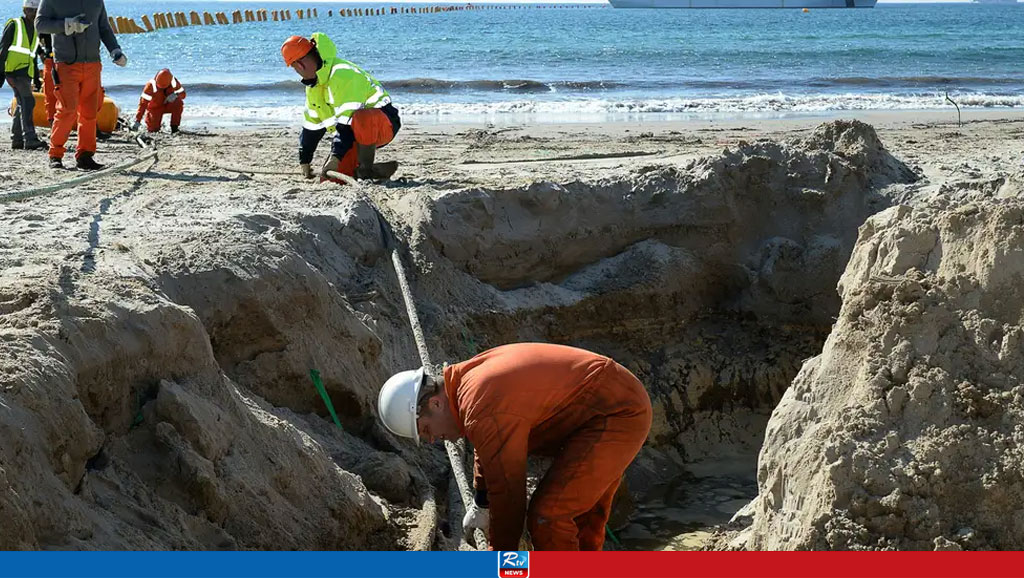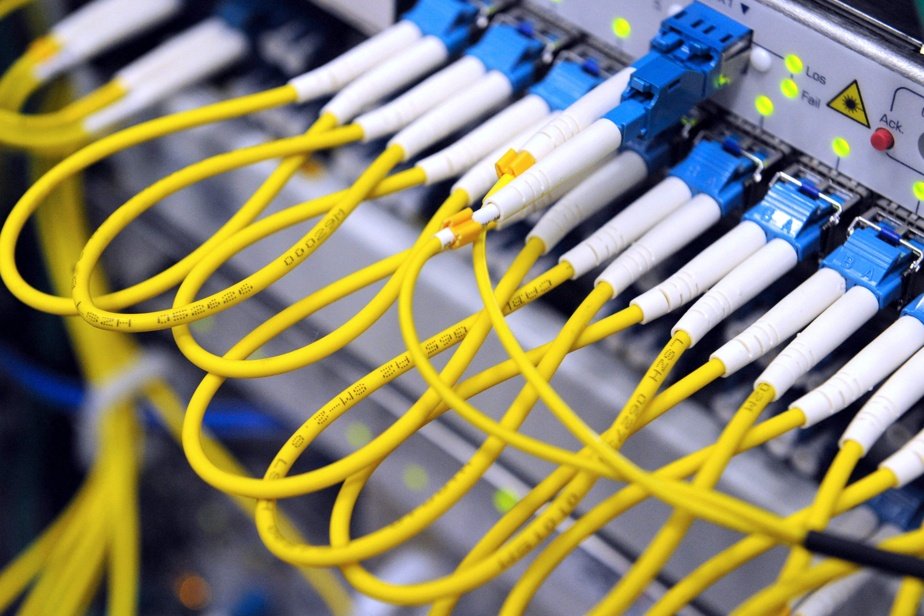Houthi attacks in Red Sea threaten internet infrastructure
The recent attack on the cargo ship Rubymar by the Iran-backed Houthis caused the crew to drop anchor, which damaged undersea internet cables, the US has said. Could the vital infrastructure now become a regular target?
A new threat has emerged from the attacks by Iran-backed Houthis on shipping in the Red Sea that have caused delays to goods arriving in Europe from Asia.
The United States said last week it believed the recent sinking of a Belize-flagged, Lebanese-operated fertilizer ship severed vital undersea cables that provide internet connectivity between the East and West.
The attack on the M/V Rubymar on February 18 "forced the crew to drop anchor and abandon ship," a US defense official said.
"Preliminary assessments indicate the anchor dragging along the seafloor is likely to have cut the undersea cables that provide internet and telecommunications service around the world," the official added.
First environmental threat, now internet disruption
The Rubymar has since sunk, causing an environmental disaster. A 29-kilometer (18-mile) oil slick emerged shortly after the attack, according to the US military's Central Command.
There are now fears that its fertilizer cargo could cause further damage, if it were to leak.
While the Houthis were not directly responsible for the damage to the undersea cable, their attacks have increased the threat to internet connectivity in the region as they make other, similar incidents more likely.
The fiber-optic cables, 16 of which have been laid in the Red Sea, stretch along the ocean floor and allow internet data to travel at nearly the speed of light.
Media reports suggest damage to the cable was so severe that it disrupted a quarter of internet traffic between Asia and Europe.
"Accidents with ship anchors account for the second most common cause of submarine cable faults," Tim Stronge, vice president of research at the Washington-based telecoms research firm TeleGeography, wrote in a recent blog post. "On average, two cables suffer faults somewhere in the world every week."
Repeated attacks increase risk to undersea internet cables
Stronge added that the Houthi attacks on shipping do, however, present "real challenges" as sunken vessels create underwater hazards to the cables and cable-laying ships.
The Houthi attacks have not just caused a spike in insurance for container ships, but also for the ships that help lay the undersea internet infrastructure. Stronge said that could make the installation of new cables in the Red Sea "prohibitive."
"The real problem in a war risk area is that you cannot just repair the cable as you would anywhere else," Peter Sand, chief analyst at the Copenhagen-based maritime research firm Xeneta, told DW. "You cannot send a cable repair ship to the Red Sea right now," [due to the risk of attack.]
The Wall Street Journal this week cited industry experts as saying that the cost to insure cable ships near Yemen has risen to as much as $150,000 per day.
Alternative cable routes must be explored
Telecom industry experts are, meanwhile, calling for governments to do more to force the industry to find alternative routes for internet cables to lower the disruption caused by the severing of undersea lines.
Land routes across Saudi Arabia, for example, could help avoid the Red Sea and other high-risk waters in the Middle East altogether. But land cabling is often a lot more costly, they warn.
The Houthis, who control much of war-torn Yemen, have said they are targeting Israeli, US and UK-linked ships in the Red Sea in retaliation for Israel's war against the Palestinian militant group Hamas in Gaza.
The Iran-backed group has targeted dozens of vessels since late last year, and the Rubymar was the first ship to sink as a result of their assault.
In the Houthi's first fatal attack, two Filipino and one Vietnamese crew members were killed when their vessel, the Barbados-flagged, Greek-operated True Confidence, was struck last Wednesday by a missile, setting the ship ablaze.
The Houthis have denied targeting undersea telecom cables, but their near-daily attacks have caused many global shipping firms to avoid the Red Sea and the nearby Suez Canal to the Mediterranean.
Instead, many vessels are plying a longer, more dangerous route around southern Africa to Europe, which takes an extra seven to 10 days.
Insurance premiums for shipping have risen as a result of the heightened risks, while the rerouting has driven up fuel, staff and other costs, as more vessels are needed for the longer route.
Shipping rates also rose sharply late last year, but have been coming down since the end of January.
Fatalities could spur more ships to use Africa route
Despite the risks, some shipping companies continue to use the Red Sea. But the fatalities on the True Confidence and the severing of the undersea cables could see more firms choose the safer route around Africa.
"Every company has its own risk assessment — which explains why some companies still transit [the Red Sea]. But a red line may now have been crossed with the casualties [on True Confidence]," said Sand.
The latest attacks could even spark tougher measures by Western forces who have mounted naval missions to the nearby waterways to protect the vital shipping trade from Asia to Europe.
The US and UK sent warships to the region in November when the attacks first began; a separate European Union naval mission began to the Middle East last month, backed by several EU states, including Germany.
"I don't see a large-scale military response," Sand told DW. "This is a tug of war, so I expect the naval forces in the area to continue to do a thorough investigation of targets that need to be dealt with to secure the safe passage of commercial ships."
18 Mar 2024,20:31
















 Live Tv
Live Tv









